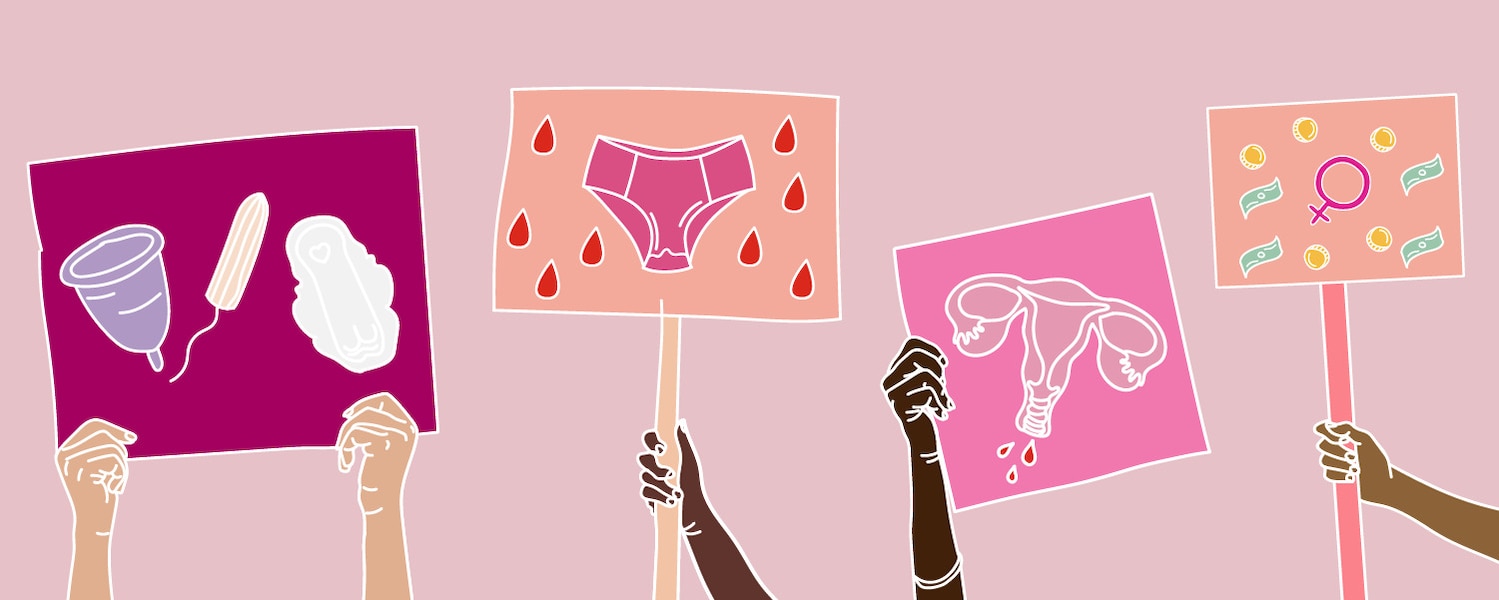What is period poverty?

Although period poverty is not often talked about, it is a global problem that affects millions of people. So it’s important that we all understand what it means and how we can help put an end to it.
Let's face it, periods can be a bit of a challenge. From PMS to period pain, there are a few things on our minds when we menstruate. Now imagine having to worry about whether you'll be able to get period products to get by. This is what period poverty is about. Period poverty basically means being unable to access menstrual products. The reasons for this are many, from financial constraints to feelings of shame and lack of menstrual education. It is estimated that at least 500 million people around the world experience this every month, stopping them from being able to manage their periods in a safe, hygienic and confident way. Shocking, right? [1]
What are the effects of period poverty?
Though it may not seem obvious from the outset, period poverty manifests itself in many different ways, excluding an important part of the population from everyday activities and further reinforcing gender inequality.
For example, many people miss school, work or religious events every month because of their periods and this has a negative impact on not only their education and income, but also their integration within society. According to the World Health Organization (WHO), 90% of female students in rural areas in Macedonia skip school for four or five days when on their period. [2] In the UK, it was reported that more than 137,700 girls missed school in a single year for the same reason. [3]
The lack of period products also leads many to use old clothes or other unsafe materials to help manage the bleeding. Doing this can cause serious physical health risks such as reproductive and urinary tract infections, according to UNICEF. [4]
It may seem absurd that so many people have to go through such shame and trouble with what is a completely normal and healthy bodily process – sadly, it is still a commonplace reality.
How can we help to end period poverty?
Ending period taboos
As well as providing those who can’t afford period products with them, helping to end period poverty also includes opening more discussions, dispelling myths, and breaking taboos around menstruation.
In our Global V Taboo Tracker report, we found that although periods are a normal part of life, only two in five women have discussed them with their partner. [5] This shows there is still a huge stigma when it comes to menstruation. Lack of information only leads to more people being unsure about how to speak about periods and how to manage them. Fortunately, each and every one of us can make a difference!
What is being done around the world
Many government initiatives, campaigns and charities have been set up to help fight period poverty on an international level. For example in 2020, Scotland passed a bill which guaranteed free period products to all those who require them. [6] Similarly in 2018, the Kenyan government announced an effort to give out 140 million free sanitary pads to girls studying in public schools. [7] Furthermore, in response to the UK period poverty crisis, in 2017 Bodyform pledged to donate 100,000 towels to those in need every month for 3 years. [8]
Of course, this is only the beginning of the journey towards completely eradicating period poverty but every step counts.
Get involved with period poverty
If you’re interested in helping organisations in your own area tackle period poverty, your local food bank or shelter welcomes donations of menstrual products. You can also find a list of other ways to help here.
Periods are a normal part of life, and as such we should open up the conversation around them. This will not only enable people to understand their own bodies better, but also make many realise the importance of ensuring access to period products for everyone. To read more about V-Zone experiences and our myth-busting initiatives, head over to the Our World.
Project V
[References]
[1] https://borgenproject.org/tag/period-poverty/
[2] https://www.euro.who.int/en/countries/kyrgyzstan/news/news/2018/11/tackling-the-taboo-of-menstrual-hygiene-in-the-european-region
[3] https://www.independent.co.uk/news/international-women-s-day-period-girls-missed-school-uk-sanitary-products-menstruation-a8244396.html
[4] https://www.unicef.org/press-releases/fast-facts-nine-things-you-didnt-know-about-menstruation#_edn2
[5] The GVTT Report
[6] https://borgenproject.org/tag/period-poverty/
[7] https://www.globalcitizen.org/en/content/kenya-schoolgirls-free-pads/


